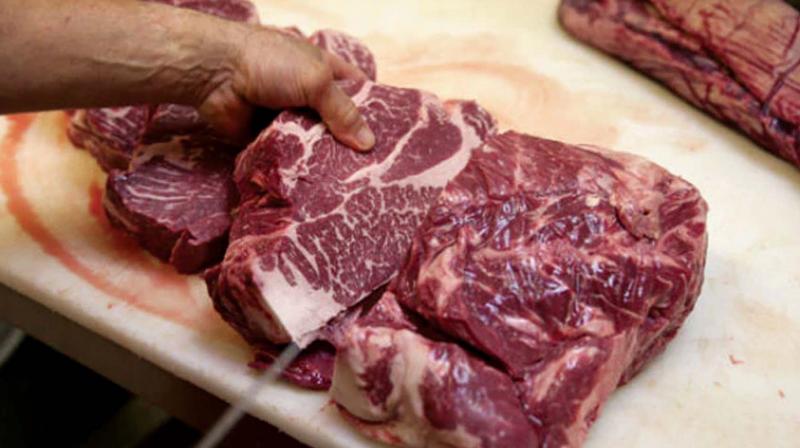Reduce export of products which require more water
On an average, India exported every year 49.79 billion cubic metres of virtual water (162 tmcft).

CHENNAI: India, one of the biggest beef and rice exporters of the world, is exporting 162 tmc ft of water every year in virtual form, researchers found out in a new study.
As one of the measures to save depleting groundwater resources in the country, the researchers from Anna University have suggested the scaling down of the export of beef, rice, maize and other items to conserve groundwater.
By using the data of exports and imports of food and livestock products of India, the researchers studied the virtual water trade from 2006 to 2016.
The study on “Temporal variation in export and import of virtual water through popular crop and livestock products by India” was sponsored by the Department of Science and Technology, Government of India.
It was found that India has exported 496.7 billion cubic meters of virtual water (the water required or consumed in the production of goods) during the study period.
It has imported 237 billion cubic metres of water by importing products such as cashew nuts, pulses from 2006 to 2016.
On an average, India exported every year 49.79 billion cubic metres of virtual water (162 tmcft).
It also imported 23.72 billion cubic metres of water (77.8 tmc ft), thus becoming a net exporter with an average of 25.9 billion cubic metres of virtual water (roughly 84 tmcft) every year.
“The maximum export of virtual water was mainly through rice, maize and buffalo meat while the imports were through cashews, pulses and wheat. The rest of the food items contributing negligible amounts,” Professor L. Elango from Anna University and leading researcher of the study said.
Among the agricultural products, coffee and walnut, pulses and groundnuts, rice, maize and wheat require more water to get yield per one tonne. But, the buffalo meat requires 16,840 cubic metres of water to produce one tonne of meat and sheep/ goat meat requires 11,879 metres cube of water to produce one-tonne meat.
“Though the water products for the crops is very high, the water requirement for producing meat and processed products consumes 5 to 20 times more virtual water per kg for compared to crop products. The water consumed by the animal from the day it is born until its slaughter is high which includes the water required for producing its feed, drinking, cleaning and servicing the land where the animal was raised,” researchers pointed out in the article published in a leading journal “Groundwater for Sustainable Development” recently.
The per capita availability of surface water would considerably be reduced from 1902 cubic metre in 2001 to 1401 cubic metre in 2025 and 1191 cubic metre in 2050. “The use of groundwater for agricultural and farming purposes is about 85% and the remaining only is used for industrial and domestic purposes. Hence, it is important to reduce the export of products including rice, maize and buffalo meat which requires more water. The other way to reduce the export of water in virtual form from India is through the production of food products by water efficient methods,” Professor Elango said.
Water efficient methods include effective irrigation techniques, proper irrigation scheduling, suitable crop selection according to the land, climate conditions and using alternative sources of water for irrigation. “Judicious mixing and growing of different crops with lower water demand at the national level need to be taken up to reduce the export of virtual water from India, especially in the current scenario of wide-scale depletion in groundwater resources and climate change induced rainfall variability,” Professor Elango said.
Erratic monsoons, droughts, floods, increase in population, increase in mean atmospheric temperature and depletion of groundwater resources will intimidate food and livestock production. “Here, the need to keep up with the demand for export the producers will be forced to increase groundwater exploitation which will threaten the sustainable goals of the country,” the researchers warned in their study. This study will enable the water managers of the country to prioritise the export and import of products by considering virtual water form which will result in sustainable management of groundwater resources which is under threat in India.

